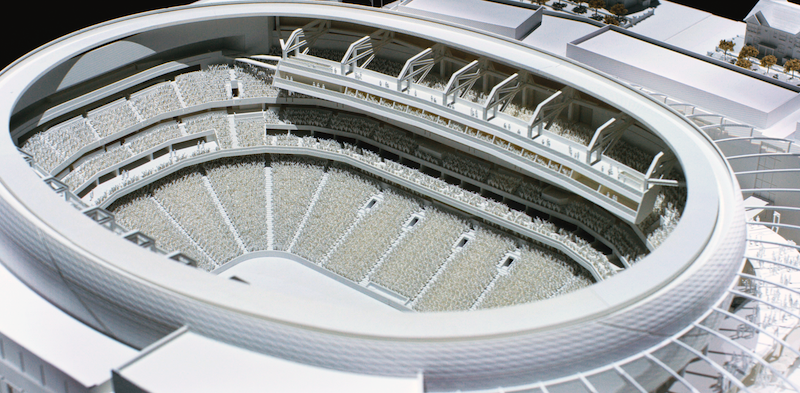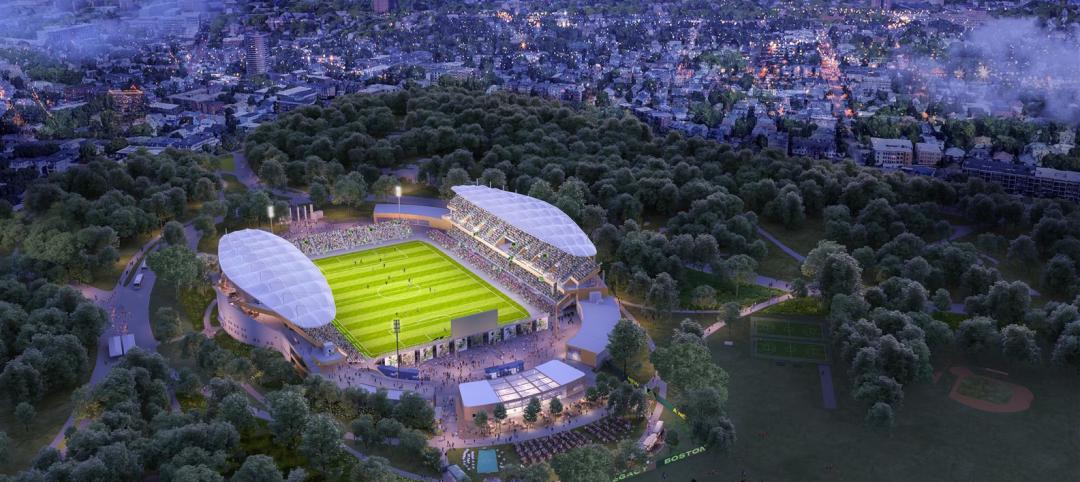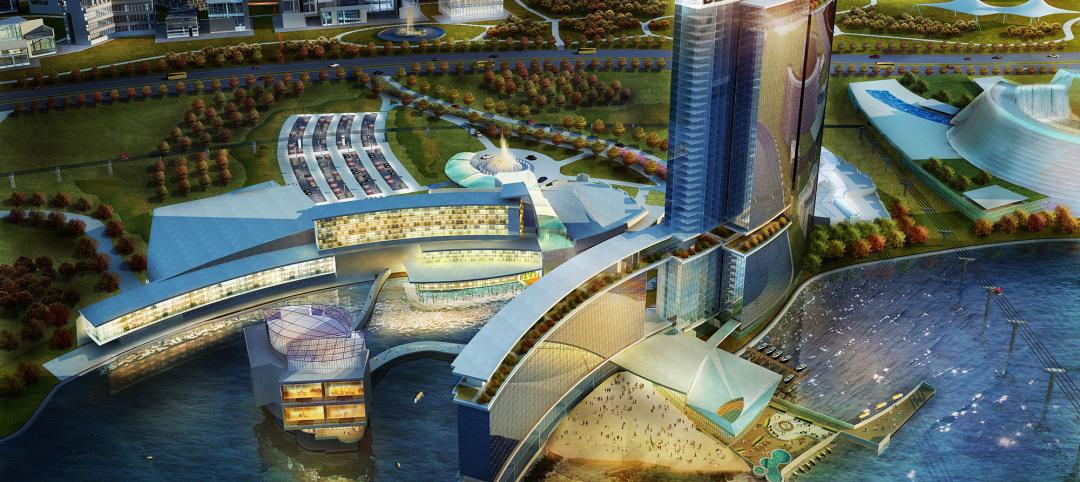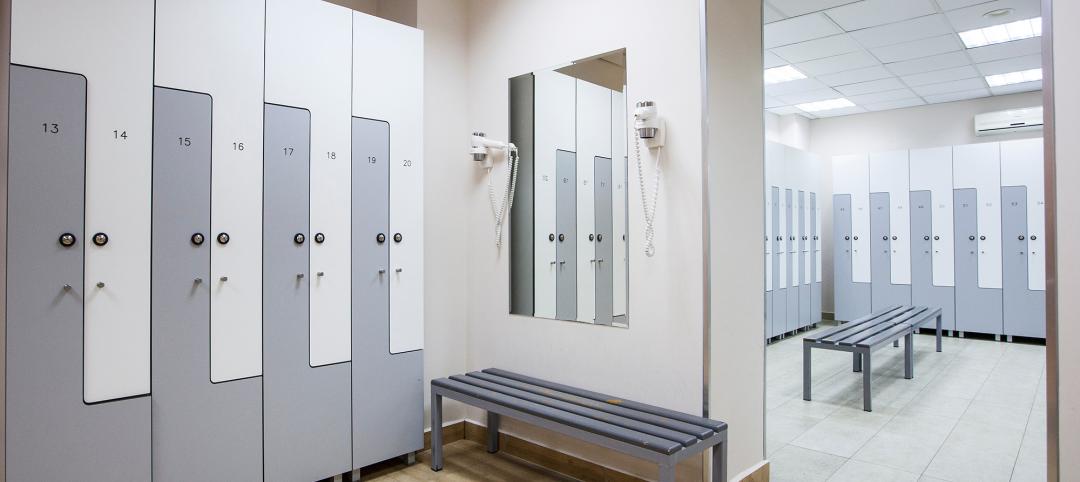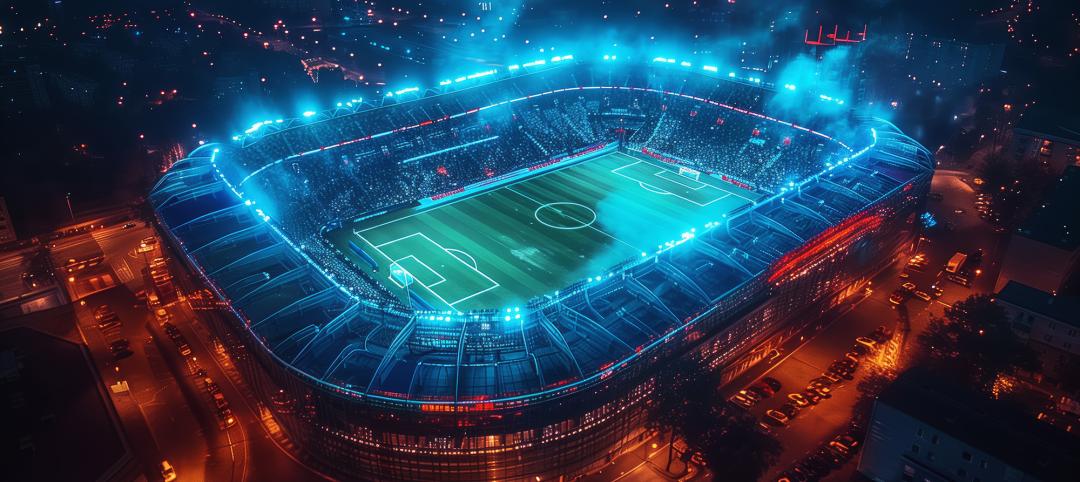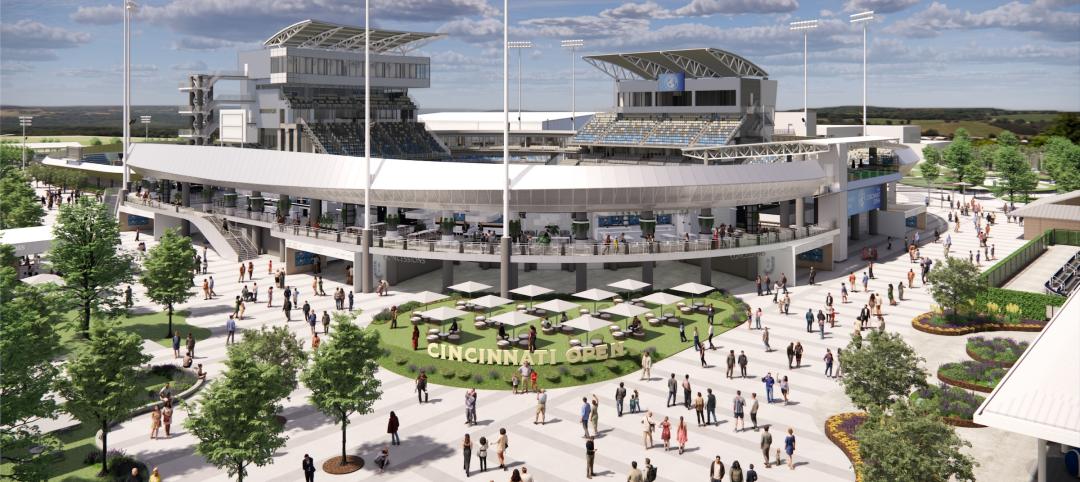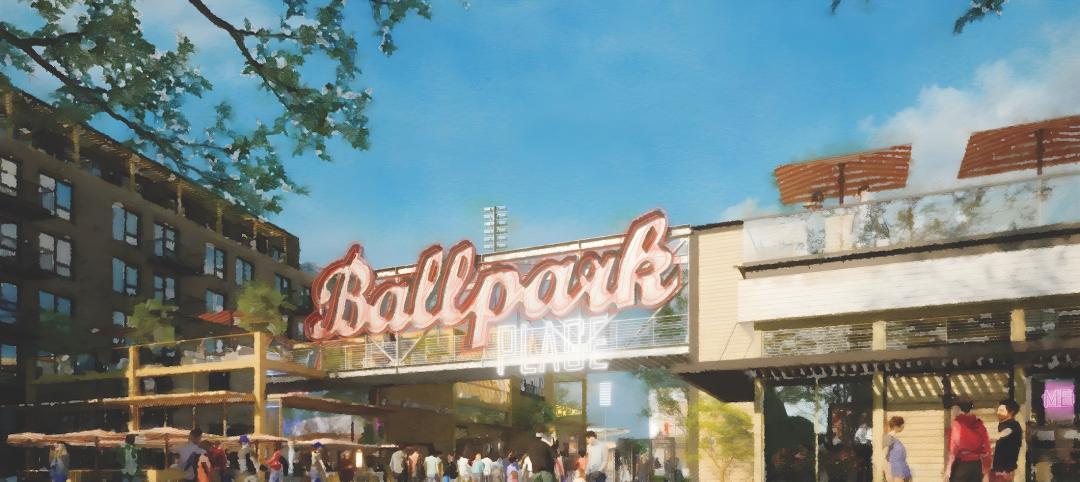This September, the 21,000-seat Little Caesars Arena is scheduled to open in downtown Detroit. The $732.6 million arena will be the new homes to the Detroit Red Wings professional hockey team and the Detroit Pistons basketball team.
The Red Wings is owned by Illitch Holdings, whose Olympia Entertainment division will operate the arena, and whose other holdings include the Detroit Tigers baseball team and the Little Caesars pizza chain.
The eight-story arena, owned by the Downtown Development Authority, will anchor The District Detroit, a 50-block, $1.2 billion, 650,000-sf revitalization project that, when completed, will energize five neighborhoods—Columbia Street, Columbia Park, Woodward Square, Wildcat Corner, and Case Park Village—with new businesses, parks, restaurants, bars, offices, retail, and residential spaces. The District’s event destinations will include six theaters and three multi-use sports facilities.
A unique glass-roofed concourse will connect the arena to the offices and shops around it.
Little Caesars is expanding its headquarters in the District with a new $150 million, nine-story, 234,000-sf office building, the first newly built global headquarters in Detroit in a decade. (Blaze Contracting is this building’s GC. Its completion is expected next year.)
To drum up interest in The District Detroit—which is projected to generate $2.1 billion in local economic impact and 1,100 new permanent jobs—Olympia partnered with Detroit-based Zoyes Creative Group to create The District Detroit Preview Center, whose main feature is two large 3D printed models: one of the arena and one of the District.
The arena is the centerpiece of The District Detroit, a revitalization of 50 blocks in downtown Detroit that will add 650,000 sf of new offices, retail, residential, sports and entertainment space. Image: Stratasys Direct Manufacturing
These are among the most intricately detailed 3D printed models ever created. They include light columns, office interiors, vehicles, and—the piece de resistance—a representation of every fan who would be seated in the arena at capacity.
Zoyes uses a Fortus 450mc 3D production system printer. But it quickly realized that it needed help to complete this project on time. So it hired Stratasys Direct Manufacturing, based in Valencia, Calif., whose arsenal includes a Fortus 900mc 3D printer, to assist in the concept modeling.
“No other company would have been able to jump on board as quickly as [Stratasys] did,” says Rich Rozeboom, who directs Zoyes’s imaging department.
The decision to create such elaborate 3D models “changed everything,” says Tom Wilson, Olympia’s president and CEO. Olympia’s original plan was that it would take six months to complete the models, after which it would start selling suites within the arena. But Zoyes and Stratasys completed the suite models in 40 days. “That changed all of our methods, all of our success models,” says Wilson.
He adds “3D printing makes the arena come to life just by making it real. That model puts you in real Detroit.”
The Building Team for the Little Caesars Arena includes HOK (designer), Barton Marlow/Hunt/White (GCs), Magnusson Klemenic Associates (SE), and Smith Seckman Reid (services engineer). A live webcam of the construction can be viewed here.
Related Stories
Sports and Recreational Facilities | Oct 24, 2024
Stadium renovation plans unveiled for Boston’s National Women’s Soccer League
A city-owned 75-year-old stadium in Boston’s historic Franklin Park will be renovated for a new National Women’s Soccer League team. The park, designed by Fredrick Law Olmsted in the 1880s, is the home of White Stadium, which was built in 1949 and has since fallen into disrepair.
Sports and Recreational Facilities | Oct 17, 2024
In the NIL era, colleges and universities are stepping up their sports facilities game
NIL policies have raised expectations among student-athletes about the quality of sports training and performing facilities, in ways that present new opportunities for AEC firms.
Designers | Oct 1, 2024
Global entertainment design firm WATG acquires SOSH Architects
Entertainment design firm WATG has acquired SOSH Architects, an interior design and planning firm based in Atlantic City, N.J.
Products and Materials | Aug 31, 2024
Top building products for August 2024
BD+C Editors break down August's top 15 building products, from waterproof wall panel systems to portable indoor pickleball surface solutions.
Designers | Jul 29, 2024
Inclusive design for locker rooms: Providing equitable choice and access
SRG designers pose the question: What would it look like if everyone who wanted to use a restroom or locker room could?
Great Solutions | Jul 23, 2024
41 Great Solutions for architects, engineers, and contractors
AI ChatBots, ambient computing, floating MRIs, low-carbon cement, sunshine on demand, next-generation top-down construction. These and 35 other innovations make up our 2024 Great Solutions Report, which highlights fresh ideas and innovations from leading architecture, engineering, and construction firms.
Sports and Recreational Facilities | Jul 15, 2024
Smart stadiums: The future of sports and entertainment venues
These digitally-enhanced and connected spaces are designed to revolutionize the fan experience, enhance safety, and optimize operational efficiency, according to SSR's Will Maxwell, Smart Building Consultant.
Sports and Recreational Facilities | May 23, 2024
The Cincinnati Open will undergo a campus-wide renovation ahead of the expanded 2025 tournament
One of the longest-running tennis tournaments in the country, the Cincinnati Open will add a 2,000-seat stadium, new courts and player center, and more greenspace to create a park-like atmosphere.
Sports and Recreational Facilities | Apr 25, 2024
How pools can positively affect communities
Clark Nexsen senior architects Jennifer Heintz and Dorothea Schulz discuss how pools can create jobs, break down barriers, and create opportunities within communities.
Mixed-Use | Apr 9, 2024
A surging master-planned community in Utah gets its own entertainment district
Since its construction began two decades ago, Daybreak, the 4,100-acre master-planned community in South Jordan, Utah, has been a catalyst and model for regional growth. The latest addition is a 200-acre mixed-use entertainment district that will serve as a walkable and bikeable neighborhood within the community, anchored by a minor-league baseball park and a cinema/entertainment complex.


